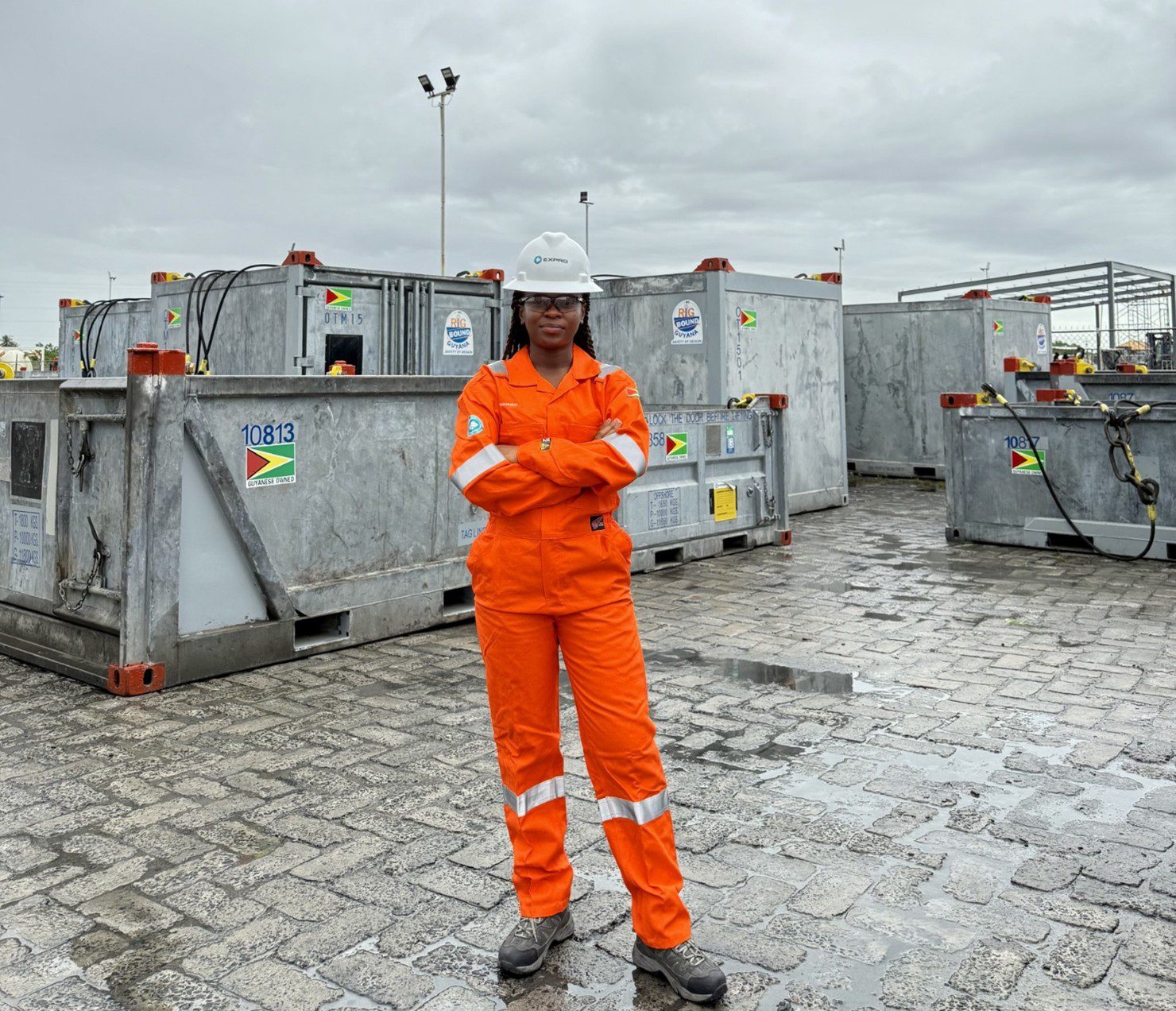When it comes to safety in the oil and gas industry, Natonya Scipio believes the smallest actions often make the biggest difference. As a Quality Coordinator at Expro Guyana, her mission is clear: ensure every person on site goes home safely at the end of each day.
“No two days are ever quite the same in QHSE (Quality, Health, Safety and Environment), especially in oilfield operations,” she said. “A day starts with the toolbox talk meetings to ensure the teams understand the risks involved and how to manage them.”
For Scipio, safety is about communication as much as it is about compliance. “A big part of my role is connecting with technicians, supervisors, and management to make sure safety procedures are practical, understood, and consistently followed.”
Her career began far from the boardroom, in the workshop. “I started out as a heavy-duty equipment technician and later moved up to supervising a team in that field,” she recalled. Working hands-on with machinery helped her appreciate how critical maintenance and safety are to any operation.
I saw how one small oversight could have major consequences, and that pushed me to take a deeper interest in safety systems, training, and continuous improvement.
That curiosity evolved into a calling. Scipio pursued formal training in QHSE and eventually joined Expro, where her technical expertise and leadership experience became invaluable. “It’s been rewarding to use both my technical background and leadership experience to help create safer, more efficient workplaces,” she said.
The oil and gas sector wasn’t always her plan, but it opened new doors as Guyana’s industry grew. “When I first became exposed to oilfield operations, I was immediately drawn to the structure, discipline, and emphasis on safety that defines the sector,” she said. “It challenged me to think bigger — not just about doing a job well but about contributing to systems that protect people and the environment.”
Being one of the few women on a job site came with its own challenges. “At times, I had to work a little harder to prove that I belonged — that I had the technical skills, the experience, and the confidence to lead,” she said. “Over time, I learned that consistency and competence speak louder than anything else.” Through mentorship and determination, Scipio turned those challenges into motivation to support other women entering the field.
Beyond her role, Scipio sees her work as part of something much larger. “Guyana’s oil and gas industry is still young, and I feel proud to contribute to something that’s shaping our country’s future,” she said. “It’s not just about energy production, it’s about building local capacity, transferring knowledge, and creating opportunities for the next generation of Guyanese professionals.”



